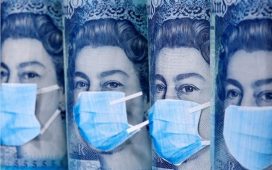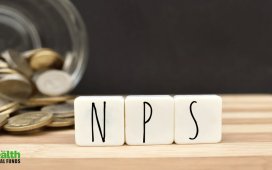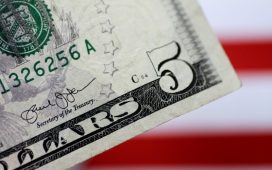
MOSCOW (Reuters) -Certain Russian exporters will be required to deposit no less than 80% of foreign currency earnings with Russian banks and then sell at least 90% of those proceeds on the domestic market within two weeks, the government said on Friday.
President Vladimir Putin signed a decree this week mandating the reintroduction of capital controls for an undisclosed list of 43 exporting firms, but details on how the measures would work in practice, such as the start date and percentage of revenues affected were lacking.
The capital control measures will last six months. Russia has not named the specific companies the measures will apply to. On Wednesday the government said it would affect 43 groups of companies in the fuel, energy, metal, chemical, timber and grain industries.
“Starting from Oct. 16 this year, certain Russian exporters, within 60 days from the moment of receiving funds, are obliged to credit their accounts in Russian banks with no less than 80% of all foreign currency received in accordance with the conditions of their export contracts,” the statement said.
“They are also required, within two weeks, to sell on the country’s domestic market no less than 90% of foreign currency revenues credited to their accounts at Russian banks, but not less than 50% of funds received in accordance with each export contract, within no more than 30 days of receipt.”
Putin said on Friday he believed the results would be positive, but that the central bank, government and presidential administration all had their own views on the matter.
“There are reasons to believe that the rouble rate is fluctuating because foreign currency earnings are not being returned in sufficient volume to mobilise the money supply on the domestic market,” Putin said.
“We understand the possible threats associated with the movement of capital.”
Discussions about reimposing currency control have been underway for months. They were particularly topical in August when the rouble tumbled past 100 to the dollar, a slide that led the central bank to hike rates by 350 basis points at an emergency meeting.
The rouble collapsed to a record low in the weeks after Russia despatched troops to Ukraine last year, before Moscow imposed similar capital controls that saw it recover to a seven-year high.










